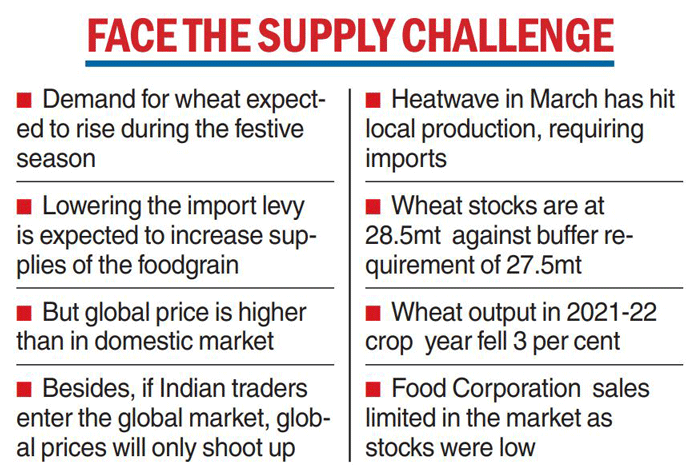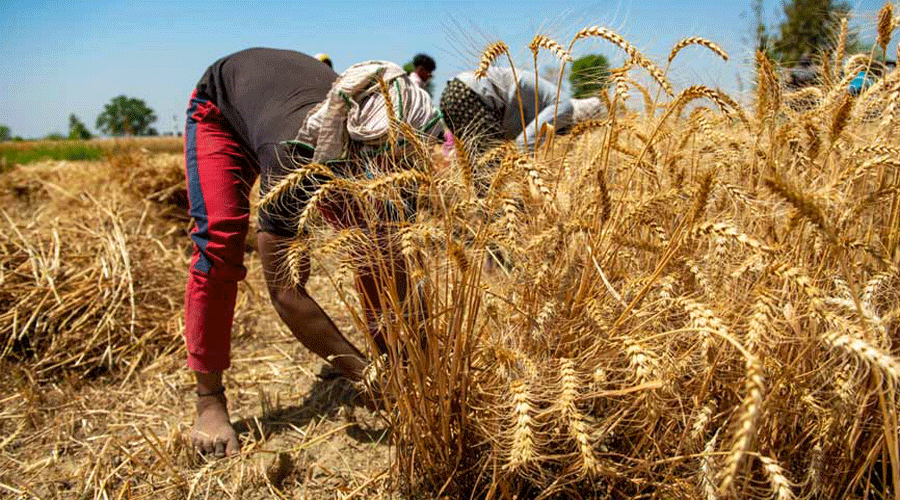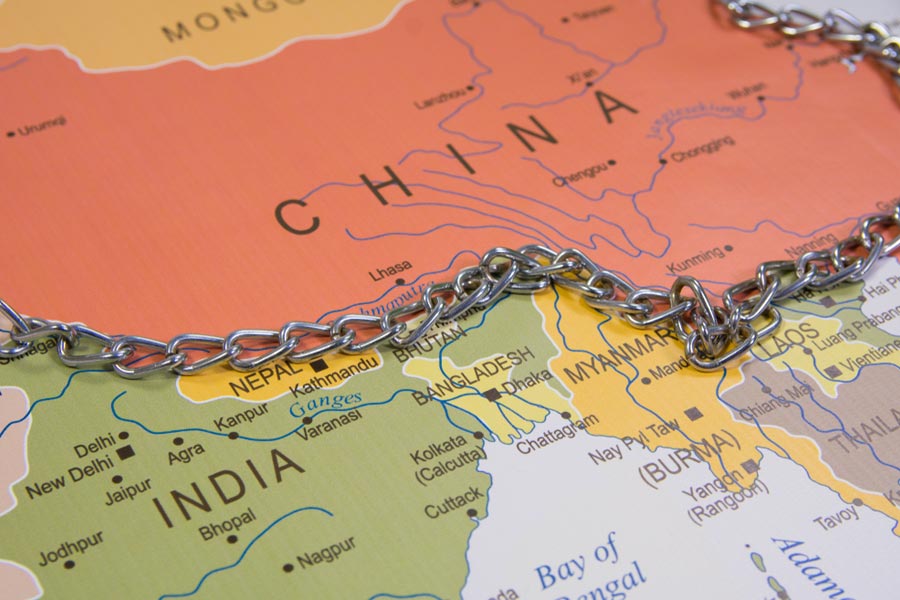The government plans to scrap the import duty on wheat to encourage inward shipment and meet its growing demand during the festive season.
Officials said the Centre was considering several other measures such as doing away with the stock holding limit of the foodgrain.
Analysts said the move might not fetch the desired results as the domestic prices are much lower than the global prices.
The policy flip-flop by the government creates uncertainty in the market which only helps speculators.
Besides, any move by India to enter the world market will only result in the hardening of global prices because of low supplies on account of the war in Ukraine.
In April 2019, India raised the import duty on wheat to 40 per cent from 30 per cent with the drop in domestic prices — a move meant to discourage cheaper imports.
Wheat prices in the country have seen a significant increase to cross a record Rs 2,500 per quintal because supplies have failed to keep pace with the robust demand.

According to traders, the heat wave in March — a period when the wheat crop matures — has hit harvest and supplies in the market.
The wheat prices are around Rs 2,550 per quintal. The mandi prices were hovering around Rs 2,150-2,175 per quintal since the ban on wheat export was imposed by the government on May 14, 2022.
“Domestic prices are around Rs 25 per kg and the landed cost of imported wheat currently is around Rs 33-34 a kg. Given the significant price difference, traders may not import substantial quantities to lower domestic prices. Moreover, any move by the country to import wheat would only spike global prices, which is already facing shortage due to the Russia-Ukraine conflict” analysts said.
A big factor impacting prices was the Food Corporation of India’s (FCI) decision not to sell in the open markets as stocks were low because of a fall in procurement.
In the rabi marketing season (April-June) for 2022-23, wheat procurement by FCI dropped by 56.6 per cent to 18.7 million tonnes (mt) against 43.3mt purchased from the farmers in the previous marketing season.
Lower procurement has been attributed to a decline in production.
Besides, private traders had procured a substantial quantity of wheat anticipating huge profits from export.
On July 1, wheat stocks in the central pool stood at 28.5mt against the buffer norm of 27.5 mt, the lowest since 2008.
According to agriculture ministry data, wheat output in the 2021-22 crop year (July-June) declined around 3 per cent to 106mt from 109mt.
According to traders’ estimates, wheat production this year is around 98-99mt while the US Department of Agriculture’s Foreign Agricultural Service has estimated India’s production at 99mt.
Analysts said production has been on the lower side this year, while the government did not stop exports at the right time.
Government data showed wheat export has increased in the last few years.
Wheat valued at $2.1billionwas exported in 2021-22. In the first four months of 2022-23(April-July), exports stood at$1.1 billion.
According to the RollerFlour Millers’ Federation of India prices have increased Rs300-350 per quintal in the last15 days, reports PTI.
The millers have expressed concern regarding the unavailability of wheat even though the harvest season ended just a month back and the new crop would arrive only after eight months from now.
It has demanded the release of wheat under the OpenMarket Sales Scheme (OMSS)through a tender process for actual user industries.










